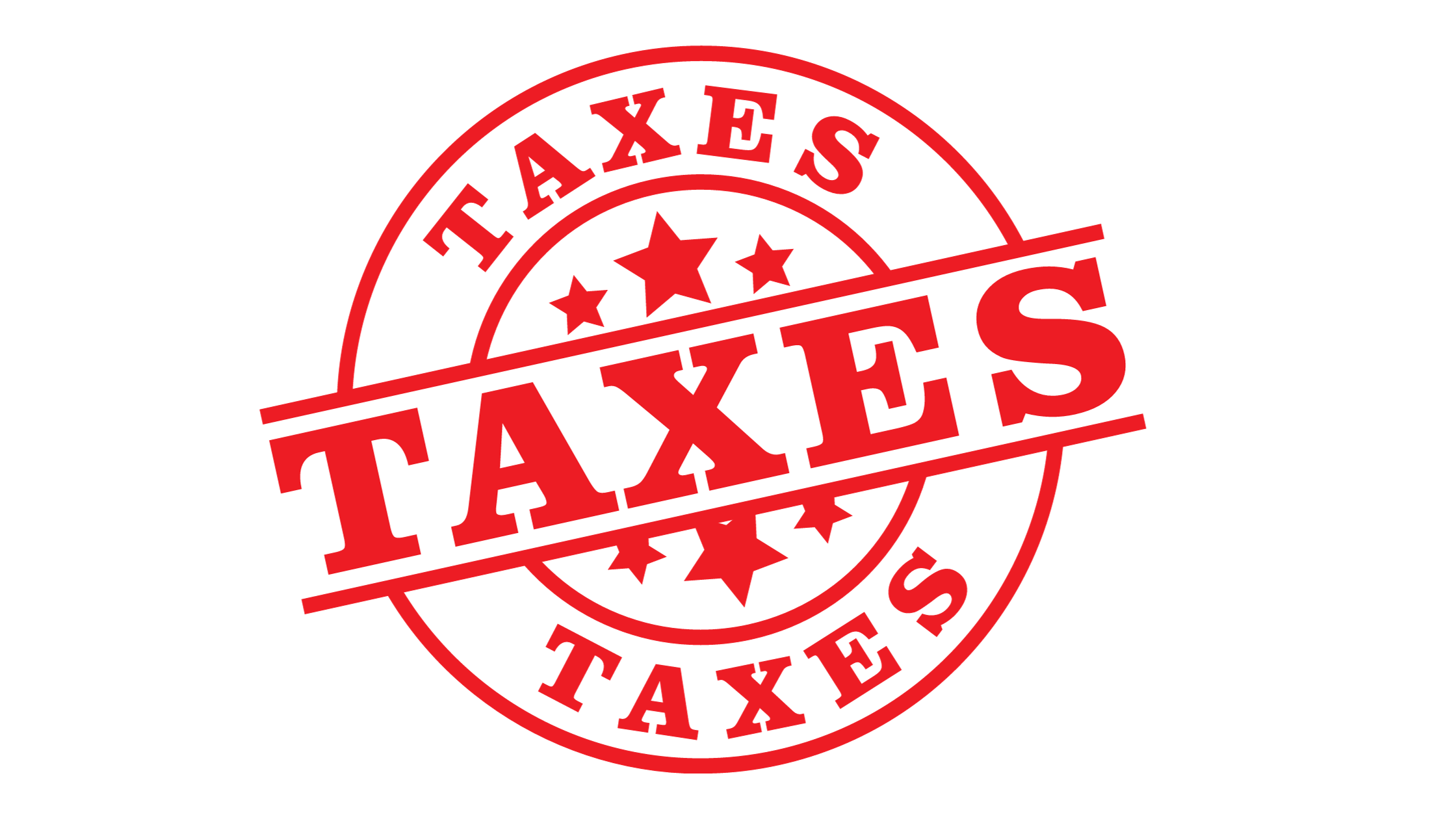Renting out real estate and offering accommodation services may seem similar at first glance, but there are significant differences in taxation, contracts, and declarations. In this post, we explain the main differences between a standard lease agreement, short-term rental, and accommodation services, and examine how tax obligations and VAT accounting impact the renting of real estate.
Standard Lease Agreement
What is a standard lease agreement? A standard lease agreement is a long-term arrangement where the property owner (landlord) allows another person (tenant) to use the property for residential purposes. Typically, such agreements are signed for six months or longer, giving the tenant the opportunity to use the property as their permanent residence.
Taxation under a standard lease agreement:
Renting out property as a private individual: If the property owner is a private individual, they must declare their rental income in their annual tax return. There is no VAT obligation for individuals since renting property as a residence is not subject to VAT in Estonia. Property owned by a business: If the property is owned by a business, VAT is generally not added in the case of a residential lease, unless the property is used for short-term accommodation services.
VAT accounting:
If the property was purchased with input VAT deducted (e.g., new real estate from a developer), it is important to monitor how the property is used. If it is used solely as a residential rental under a standard lease agreement, part of the input VAT may need to be repaid, as renting residential property is not a VAT-taxable service.
If a private individual gives their property to a company for management
Contract between an individual and the company:
An individual can enter into a contract with their own company, transferring the management of the property to the business. Such an agreement can be:
- A lease agreement (where the company pays the individual a fee for the use of the property).
- A usage agreement (where the company uses the property and only pays the related costs).
Regardless of the contract type, rental income accrues to the company, which then handles renting the property to third parties.
Taxation:
When the property is managed by a company, the income is accounted for in the company’s books.
Transaction between an individual and the company: If the individual charges the company for the use of the property (e.g., under a lease agreement), this fee is treated as rental income for the individual and must be declared in the individual’s tax return. For the individual, this is taxable as rental income and subject to income tax.
Company income: The company renting out the property must declare all rental income as company revenue. No VAT obligation arises for standard residential leases, as renting residential property is not a VAT-taxable service.
Input VAT: If the property was purchased by an individual, the company cannot later reclaim the input VAT, as the transaction occurred via a private individual.
VAT accounting:
A standard lease agreement where the company rents the property as a residence is not subject to VAT, so no VAT needs to be added. If the company provides short-term accommodation services, the income must be taxed at 9% VAT.
Example: Private individual: Ants transfers the management of his apartment to his company, OÜ AntsRental, which rents the apartment to third parties. Lease agreement: OÜ AntsRental pays Ants a monthly fee of 500 euros for the use of the property. Taxation: Ants declares this income in his personal tax return and pays the appropriate income tax. OÜ AntsRental declares the rental income (e.g., 800 euros per month) as company revenue, without adding VAT, since it is a long-term residential lease.
Short-Term Lease Agreement
What is a short-term lease agreement?
A short-term lease agreement is an arrangement for using a property for a limited period, usually less than three months. This type of agreement is often used for seasonal rentals or rental services offered through platforms like Airbnb and Booking.com.
Taxation of short-term rentals:
Renting out as a private individual: A private individual must declare income from short-term rentals in the same way as for long-term leases. However, it is important to note that if short-term rentals are part of a continuous activity (e.g., regular Airbnb offerings), it may be necessary to treat this activity as a business.
Property owned by a business: If short-term renting is done through a business, it is considered an accommodation service, and all rental income must be accounted for in the company's books as revenue.
VAT accounting:
If the property is rented out on a short-term basis and regularly, the rental service may be subject to VAT. If input VAT was deducted when purchasing the property, VAT must be added to the short-term rental income. In Estonia, the VAT rate for short-term accommodation services is 9%, such as for hotels, guesthouses, and services offered via Airbnb.
Accommodation service
What is an accommodation service?
Accommodation service is a business activity where the property owner offers living space for short-term use, similar to hotels or guesthouses. This service can be provided in a hotel, guesthouse, or apartment that is rented out for short periods to tourists or temporary residents.
Taxation of accommodation services:
Offering accommodation services as a private individual: A private individual may provide accommodation services on a short-term basis (e.g., via Airbnb). However, if the activity becomes regular, there may be a requirement to register the activity as a business and declare and tax the income accordingly.
Property owned by a business: If accommodation services are provided through a business, they are subject to VAT in Estonia (9%). All income must be declared as business revenue, and VAT must be added.
VAT accounting:
- If the accommodation service is subject to taxation, a 9% VAT must be added to the service. If the property was purchased with input VAT deducted, the input VAT can be reclaimed, but it is important to ensure that the property is used exclusively for taxable services.
- If the property is partially used as a residence and partially for accommodation services, partial repayment of the input VAT may be necessary.
Differences in taxation and declaration:
Standard lease agreement:
- No VAT obligation, as renting residential property is not a taxable service.
- Income declaration: as a private individual, income is declared in the personal tax return; as a business, it is declared as business revenue.
- Input VAT: If the property was purchased with VAT and used as a residence, part of the input VAT must be repaid proportionally.
Short-term lease agreement:
- VAT: May be necessary if the rental service is continuous and business-related (e.g., Airbnb); 9% VAT applies.
- Income declaration: depends on whether it is through an individual or a business.
- Input VAT: If the property is purchased and used to provide taxable services, the input VAT can be reclaimed.
Accommodation service:
- VAT: 9% rate, mandatory for accommodation services.
- Income declaration: All income must be declared according to business tax rules.
- Input VAT: For a property used to provide accommodation services, input VAT can be reclaimed if the entire property is used for taxable services.
Renting company-owned residential property to an employee
When a company rents or provides residential property to an employee, several taxation and declaration issues arise for both the company and the employee. This arrangement may be beneficial if the employee needs accommodation near the workplace, or if the employer wishes to offer an additional benefit. Here we explain how this situation is resolved legally and in terms of taxation in Estonia.
Renting residential property to an employee
If the company owns residential property and gives it to the employee for use, several taxation and declaration aspects may arise depending on the terms of the transaction and the costs incurred by the employee. It is important to know that such a housing service may be considered a fringe benefit if the rent paid by the employee is lower than the market price, or if the company bears the housing-related costs.
Key considerations:
Market price: If the rent paid by the employee is lower than the market price, a fringe benefit tax obligation may arise. A fringe benefit is an asset or service provided by the employer to the employee at a price lower than the market value.
Obligations between the employee and employer: If the company offers housing to the employee and the employee pays the market price, no fringe benefit arises. However, if the employee pays below the market price or nothing at all, fringe benefit taxation applies.
Fringe benefit taxation and calculation Fringe benefit taxation:
If a company provides housing to an employee without charging rent or at a below-market price, this is considered a fringe benefit. Fringe benefits are taxed at the employer level, with the following taxes:
- Income tax (20%): The employer must pay income tax on the value of the fringe benefit.
- Social tax (33%): In addition to income tax, the fringe benefit is also subject to social tax.
The value of the fringe benefit is calculated based on the market price of the housing or the rental price, with the employee’s contribution (if below market price) deducted. For example, if the market price is 500 euros and the employee pays only 200 euros, the remaining 300 euros is considered a fringe benefit.
Example of fringe benefit taxation:
Market price for renting the residential property: 500 euros per month
Employee payment: 200 euros per month
Fringe benefit: 500 - 200 = 300 euros per month
Income tax (20%): 300 x 0.2 = 60 euros
Social tax (33%): 300 x 0.33 = 99 euros
Total employer tax obligation: 60 + 99 = 159 euros per month
Thus, the company must pay fringe benefit taxes to the state if the employee pays below the market price for the housing.
If the residential property is required for work duties:
If the employee needs the property for work-related duties (e.g., temporary work assignment or the workplace is far from the employee's permanent residence), such housing provision may be tax-free. However, strict rules apply:
- The employee's residence must be at least 50 km from the workplace.
- Costs must not exceed 200 euros per month in Tallinn or Tartu, and 100 euros elsewhere in Estonia (according to the Income Tax Act). Any expenses exceeding these limits are considered fringe benefits.
Limitations and taxation rules:
- The limits apply per person, and costs for each employee must be calculated separately.
- These limits apply for each taxable period (calendar month) and are only applicable to documented expenses (e.g., invoices for accommodation services or rent).
- If the accommodation costs exceed the set limits (200 euros in Tallinn/Tartu or 100 euros elsewhere), only the amount up to the limit is tax-free. Anything exceeding this amount is subject to fringe benefit taxation, and the employer must pay income and social taxes.
VAT and input VAT deduction rules
If the company rents residential property to an employee, it is important to understand the VAT accounting. Renting or leasing residential property is not a VAT-taxable service in Estonia, so:
- No VAT is added to residential lease agreements.
- If the property is purchased by the company and used solely as residential property, the company cannot reclaim the input VAT paid on the purchase.
- If the property is used partly for business purposes (e.g., short-term rentals to tourists and partly for employee housing), the input VAT must be divided proportionally, and part of the VAT may be reclaimable.
Work or official travel accommodation expenses:
Work or official travel accommodation expenses are not subject to taxation. If the employee is on a business trip and the employer pays for their accommodation, these expenses are tax-free regardless of the amount, and the above limits do not apply. If the employer chooses to rent an apartment, which is economically more advantageous than hotel accommodation, this expense can be treated as a business-related expense, which is also tax-free and not considered a fringe benefit.
Use of employer-owned residential property:
If the employer offers the employee the use of an apartment owned by the employer, the calculation of the fringe benefit value is based on the market price of the apartment or the rent specified in the lease agreement. Utility costs (e.g., water, electricity, sewage, and waste removal) are also considered when determining the value of the fringe benefit. If the employee does not fully cover the utility costs, or if the employee pays the market price, no fringe benefit arises.
Tax risks when using Airbnb and other short-term accommodation services:
If the employer rents accommodation for the employee through Airbnb or other short-term accommodation platforms, there may be tax risks if the documentation of the accommodation expense is not sufficiently transparent, or the invoices do not meet taxation requirements. It is important to use proper expense documentation and provide valid invoices for the accommodation to avoid tax issues.
Standard lease agreement and accommodation service sample
Sample Lease Agreement (Standard Lease Agreement)
LEASE AGREEMENT
This lease agreement (hereinafter "Agreement") is made on ____, on the date of ____, between the following parties:
Landlord: Name: ________________ Personal ID: ________________ Address: ________________ Contact phone: ________________ Email: ________________
Tenant: Name: ________________ Personal ID: ________________ Address: ________________ Contact phone: ________________ Email: ________________
-
SUBJECT OF THE AGREEMENT The Landlord leases to the Tenant a residential property located at ________________ (hereinafter "Property"), with a total area of ____ square meters.
-
LEASE TERM The Agreement is made for a fixed term starting from ____ and ending on ____. The Agreement can be extended by mutual written agreement of both parties.
-
RENTAL TERMS 3.1. The rent is ____ euros per month, with no VAT added. 3.2. The Tenant agrees to pay the rent no later than the ____ day of each month to the Landlord's bank account number: ________________. 3.3. The Tenant agrees to cover the utility and additional costs (electricity, water, heating, etc.) based on actual consumption.
-
LANDLORD’S OBLIGATIONS 4.1. The Landlord must ensure that the Property is suitable for its intended use and take care of any necessary repairs not caused by the Tenant. 4.2. The Landlord will not interfere in the Tenant’s daily use of the Property if it complies with the law and the terms of the Agreement.
-
TENANT'S OBLIGATIONS 5.1. The Tenant must use the Property with care and avoid causing any damage. 5.2. The Tenant must notify the Landlord immediately of any issues or defects in the Property that require repair. 5.3. The Tenant may not sublease the Property without the Landlord's written consent.
-
TERMINATION OF THE AGREEMENT 6.1. The Agreement terminates upon the expiration of the lease term or by mutual agreement of the parties. 6.2. The Tenant may terminate the Agreement by giving the Landlord written notice at least ____ months in advance.
-
OTHER TERMS 7.1. Any amendments and additions to the Agreement must be made in writing and are valid only when signed by both parties. 7.2. Any disputes between the parties will be resolved amicably; if no agreement is reached, the disputes will be settled in the courts of the Republic of Estonia.
Signatures:
Landlord: ________________ Date: ________________
Tenant: ________________ Date: ________________
Sample Accommodation Service / Short-Term Lease Agreement
ACCOMMODATION SERVICE AGREEMENT
This agreement (hereinafter "Agreement") is made on ____, on the date of ____, between the following parties:
Service Provider: Name: ________________ Personal ID/Business Registry Number: ________________ Address: ________________ Contact phone: ________________ Email: ________________
Client: Name: ________________ Personal ID: ________________ Address: ________________ Contact phone: ________________ Email: ________________
-
SUBJECT OF THE AGREEMENT The Service Provider offers the Client temporary use of a property located at ________________ (hereinafter "Accommodation"), for the period from ____ to ____.
-
ACCOMMODATION PERIOD The accommodation service is provided during the period from ____. (start date) to ____. (end date). Any extension of the period will be subject to mutual agreement by both parties.
-
SERVICE FEE AND PAYMENT TERMS 3.1. The service fee is ____ euros per day, plus VAT of __%. 3.2. The Client agrees to pay the full accommodation fee in advance, no later than the ____ day, to the Service Provider’s bank account number: ________________. 3.3. In the case of late payments, the Service Provider reserves the right to charge interest at the rate of ____% per day.
-
USE OF THE ACCOMMODATION 4.1. The Client agrees to use the Accommodation responsibly and keep it in good order. 4.2. The Client must not cause any disturbance or inconvenience to other residents or neighbors. 4.3. The Client must inform the Service Provider immediately of any damage or issues within the Accommodation.
-
LIABILITY FOR DAMAGES 5.1. The Client is responsible for any damage caused to the property during the use of the Accommodation. 5.2. All damages must be compensated no later than the date of departure.
-
TERMINATION OF THE AGREEMENT 6.1. The Agreement terminates at the end of the agreed accommodation period. 6.2. The Service Provider has the right to terminate the Agreement if the Client violates any terms, including behavioral or payment obligations.
-
OTHER TERMS 7.1. Any changes to this Agreement must be made in writing and will take effect once signed by both parties. 7.2. Any disputes that cannot be resolved by mutual agreement will be settled in the courts of the Republic of Estonia.
Signatures:
Service Provider: ________________ Date: ________________
Client: ________________ Date: ________________
These sample agreements are general templates and should be adjusted according to specific needs and legal requirements.
Renting out real estate and offering accommodation services require careful understanding of tax rules and contract nuances. It is essential to know how different tax obligations and VAT rules affect long-term and short-term rentals, as well as the specifics of providing accommodation services. Having the correct knowledge can help avoid unpleasant surprises and ensure proper tax declarations, maximizing the benefits of real estate investments.






